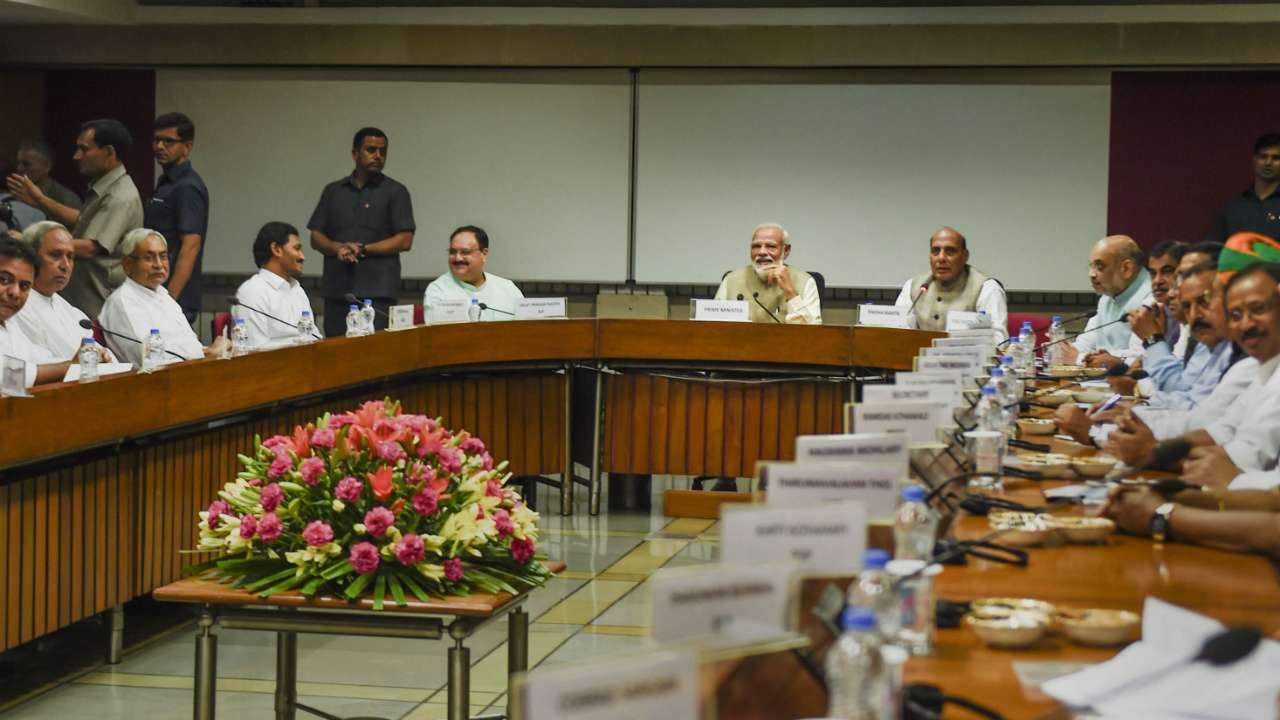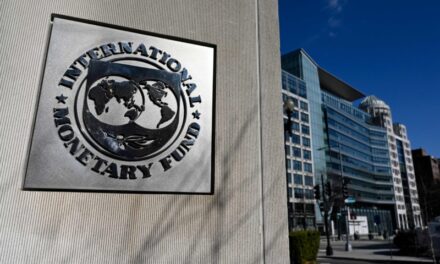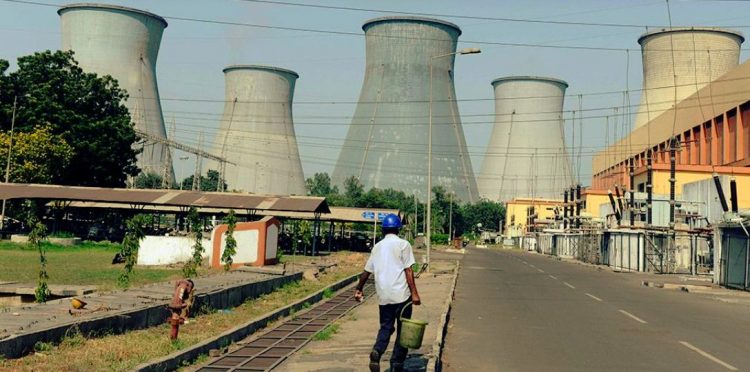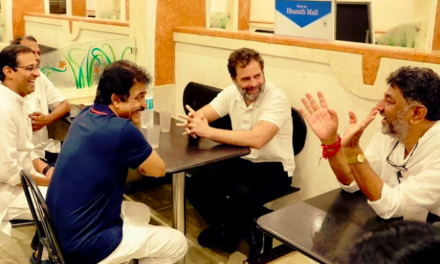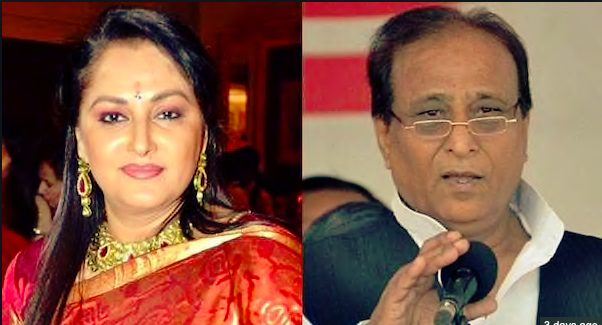Top Opposition politicians like Rahul Gandhi, Mamata Banerjee, Mayawati, N Chandrababu Naidu, Arvind Kejriwal and Akhilesh Yadav skipped a meeting of party chiefs called by Prime Minister Narendra Modi, in an indication that they were going to up the ante against the BJP.
Another absentee was BJP ally Shiv Sena’s chief Uddhav Thackeray as he was to be in Mumbai to attend his party’s foundation day celebrations.
AIADMK Convenor and Tamil Nadu Deputy Chief Minister O Paneerselvam deputed a minister C V Shanmukham to attend the meeting but he could not as the meeting was meant for party chiefs. Shanmukham was only allowed to share the views in writing with Parliamentary Affairs Minister Pralhad Joshi.
Most of the Opposition parties, including Congress, are against the idea of simultaneous polls, which was one of the prominent agenda of the meeting.
Interestingly, Mumbai Congress president Milind Deora appeared to be going against his party’s opposition to simultaneous polls as he supported the idea. Being in continuous poll mode is a roadblock to good governance, which facilitates populism which is not necessarily a long-term solution to India’s problems, he said.
While BSP chief Mayawati, Samajwadi Party president Akhilesh and Trinamool Congress chief Mamata did not mince words in criticising the government while announcing their decision to skip the meeting, Congress chief Rahul cited his pre-occupations to stay away. TDP chief Naidu was to leave the country on Wednesday night and he sent in his suggestions.
Among the Opposition, NCP and three Left parties- CPIM, CPI and RSP – attended the meeting, while UPA allies like DMK, Muslim League and Kerala Congress chose to stay away. NCP chief Sharad Pawar, CPM General Secretary Sitaram Yechury and CPI’s S Sudhakar Reddy attended the meeting.
Sources said Congress has informed other Opposition parties during a meeting on Wednesday morning that it would not be attending the meeting but other parties were free to take their own stand.
Mamata earlier wrote a letter saying she wanted a detailed plan on simultaneous polls before organising a meeting. Akhilesh expressed his concerns by saying there was a hidden agenda behind simultaneous polls, which was against federal structure and regional parties.
Mayawati said, “elections can never be a problem in a democratic country… elections should not be viewed in terms of expenditure.” She said she would have attended the meeting if it had been convened to discuss the electronic voting machines.
After the conclusion on the meeting, Defence Minister Rajnath Singh told reporters that the Prime Minister has said a committee will be constituted to give its suggestions on the subject (One Nation, One Election) in a time-bound manner.
“We had invited 40 political parties, out of which Presidents of 21 parties participated and 3 other parties sent their opinion on the subjects in writing,” Singh said after the meeting
“Most parties gave their support to One Nation, One Election, CPI(M) & CPI had a difference of opinion but they didn’t oppose the idea, just the implementation of it,” he added.
Earlier, Communist Party of India-Marxist (CPI-M) General Secretary Sitaram Yechury said the concept of ‘One Nation, One Election’ is “fundamentally anti-federal and anti-democratic and strikes at the root of a parliamentary democratic system.”
The CPI-M opposed the move stating that “simultaneous elections will enhance the role of the Governor and the Central intervention in the system.”
Patnaik extended full support to the idea of ‘one nation, one election’, saying frequent polls affect the pace of development and also “rock the spirit of cooperative federalism”.
“Frequent elections affect the pace of development and also rock the spirit of cooperative federalism. The BJD will fully support the idea of ‘one nation, one election’,” Patnaik said, adding there has to be a “give and take” attitude in the larger interest of the country.
PDP leader Mehbooba Mufti and National Conference patriarch Farooq Abdullah also attended the meet.
Last August, the Law Commission had recommended holding simultaneous elections to the Lok Sabha and state assemblies to save public money.
The draft, submitted to the Law Ministry, however, cautioned that “holding simultaneous elections is not possible within the existing framework of the Constitution”.
The BJP-led Centre has been toying with the idea for quite some time now.
“The Prime Minister called for widespread debate and consultations on simultaneous elections for Lok Sabha and Vidhan Sabhas, keeping in view various aspects such as the resulting financial savings and consequent better utilisation of resources,” an official release said last week after Modi addressed a NITI Aayog meeting here.
The government think-tank, NITI Aayog, had last year suggested synchronised two-phase Lok Sabha and Assembly polls from 2024 to ensure minimum campaign-mode disruption to governance.
The Grudge against EVM swapping and non tallying of Polled Vote Vrs counted votes in more than 370 MP seats and also non tallying of agreed 2% VVPAT on the Counting day and deletion of polled votes in Election Commission website are the main acidic issues that both Election Commission and BJP has found no answers till date

